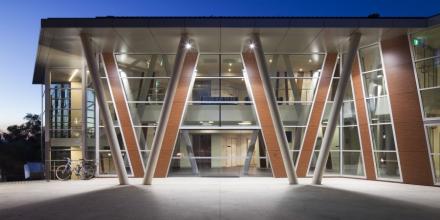Natural Hazards, Unnatural Disasters: The Economics of Effective Prevention

Event details
Other
Date & time
Wednesday 09 March 2011
12.00pm–2.00pm
Venue
Canberry and Springbank Rooms, Crawford School of Public Policy, #132 Lennox Crossing, ANU
Speaker
NULL
Contacts
Additional links
Earthquakes, droughts, floods, and storms are natural hazards, but unnatural disasters are the deaths and damages that result from human acts of omission and commission. Every disaster is unique, but each exposes actions’by individuals and governments at different levels’that, had they been different, would have resulted in fewer deaths and less damage. Prevention is possible, and this book examines what it takes to do this cost-effectively.
Natural Hazards, UnNatural Disasters looks at disasters primarily through an economic lens. Economists emphasize self-interest to explain how people choose the amount of prevention, insurance, and coping. But lenses can distort as well as sharpen images, so the book also draws from other disciplines: psychology to examine how people may misperceive risks, political science to understand voting patterns, and nutrition science to see how stunting in children after a disaster impairs cognitive abilities and productivity as adults much later. It asks not only the tough questions, but some unexpected ones as well: Should all disasters be prevented? Do disasters increase or decrease conflict? Does foreign aid help or hinder prevention? The answers are not obvious. Peering into the future, it finds that growing cities and a changing climate will shape the disaster prevention landscape. While it is cautious about the future, it is not alarmist.
Please RSVP to rsvp.crawford@anu.edu.au by Friday, 4 February 2011.
Light lunch will be provided
Inquiries contact Christina Apps 02 6125 0178
Natural Hazards, UnNatural Disasters looks at disasters primarily through an economic lens. Economists emphasize self-interest to explain how people choose the amount of prevention, insurance, and coping. But lenses can distort as well as sharpen images, so the book also draws from other disciplines: psychology to examine how people may misperceive risks, political science to understand voting patterns, and nutrition science to see how stunting in children after a disaster impairs cognitive abilities and productivity as adults much later. It asks not only the tough questions, but some unexpected ones as well: Should all disasters be prevented? Do disasters increase or decrease conflict? Does foreign aid help or hinder prevention? The answers are not obvious. Peering into the future, it finds that growing cities and a changing climate will shape the disaster prevention landscape. While it is cautious about the future, it is not alarmist.
Please RSVP to rsvp.crawford@anu.edu.au by Friday, 4 February 2011.
Light lunch will be provided
Inquiries contact Christina Apps 02 6125 0178
Updated: 27 July 2024/Responsible Officer: Crawford Engagement/Page Contact: CAP Web Team











